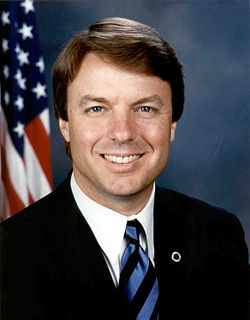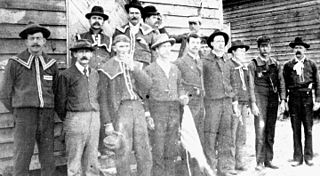 W
WThe 100-Hour Plan was a United States Democratic Party political strategy detailing the actions the party pursued upon assuming leadership of the 110th Congress on January 4, 2007. The strategy was announced before the 2006 midterm elections. Speaker Nancy Pelosi pledged that her party would continue to pursue these goals upon her assumption of leadership. The 100-hour time period refers to business hours and not actual time, and has alternately been termed "100 legislative hours"; Pelosi's spokesman Brendan Daly defined the starting point this way: "It's when the House convenes, after the one-minutes and before the special orders."
 W
WBourbon Democrat was a term used in the United States in the later 19th century (1872–1904) to refer to members of the Democratic Party, usually Southern, who were ideologically aligned with conservatism or classical liberalism, especially those who supported presidential candidates Charles O'Conor in 1872, Samuel J. Tilden in 1876, President Grover Cleveland in 1884–1888/1892–1896, and Alton B. Parker in 1904.
 W
WThe Bourbon Triumvirate refers to three powerful and influential Georgia politicians, all members of the Democratic Party, in the post-Reconstruction Era: Joseph E. Brown, Alfred H. Colquitt, and John Brown Gordon. These three men occupied positions as Governor of Georgia and Senators from Georgia between 1872 and 1890 and exercised dominance over the state politics during this era, although the extent to which the three acted as a cohesive group has been debated.
 W
WThe Brooklyn Democratic Party, officially the Kings County Democratic County Committee, is the county committee of the Democratic Party in the New York City borough of Brooklyn. It is the most local level of party governance in New York. Kings County Democratic County Committee is one of the largest Democratic county organizations in the United States, and the largest that is not its own city.
 W
WClintonism refers to the political and economic policies of Bill Clinton and his wife Hillary Rodham Clinton, as well as the era of his presidency in the United States.
 W
WThe States' Rights Democratic Party was a short-lived segregationist political party in the United States, active primarily in the South. It arose due to a Southern regional split in opposition to the Democratic Party. After President Harry S. Truman, a member of the Democratic Party, ordered integration of the military in 1948 and other actions to address civil rights of African Americans, many Southern conservative white politicians who objected to this course organized themselves as a breakaway faction. The Dixiecrats were determined to protect Southern states' rights to maintain racial segregation.
 W
WJohn Edwards is a former United States Senator from North Carolina and a Democratic Party vice-presidential and presidential candidate. In August 2008, Edwards admitted to an extramarital affair, which was initially reported in 2007 by the National Enquirer but was given little attention outside the tabloid press and political blogosphere. The Enquirer cited claims from an anonymous source that Edwards had engaged in an affair with Rielle Hunter, a filmmaker hired to work for his 2008 presidential campaign, and that Hunter had given birth to a child from the relationship. ABC News reported that Andrew Young, a member of Edwards' campaign team, stated that Edwards asked him to, "Get a doctor to fake the DNA results ... and to steal a diaper from the baby so he could secretly do a DNA test to find out if this [was] indeed his child." The allegations were initially denied by both Edwards and Hunter. Young claimed paternity of Hunter's daughter, although no father is listed on the child's birth certificate, and Young has subsequently denied it.
 W
WIn the 1864 U.S. presidential election, the Democrats nominated Union Army General George McClellan for U.S. President and Ohio U.S. Representative George Pendleton for U.S. Vice President. During the campaign, McClellan vowed to do a better job of prosecuting the Union Army effort in the American Civil War than incumbent U.S. President Abraham Lincoln did. Ultimately, the McClellan-Pendleton ticket lost to the National Union ticket of Abraham Lincoln and former U.S. Senator Andrew Johnson.
 W
WJane Amanda Hill is an English newsreader working for the BBC. She is one of the main presenters for BBC News, and is the main presenter on the BBC News at One and the BBC News at Five, as well as regularly presenting the BBC Weekend News, BBC News at Ten and BBC News at Six. She also occasionally presents The World Tonight on BBC Radio 4 and is whilst presenting BBC News at Five on Fridays on the BBC News Channel which includes The Film Review.
 W
WHillary's America: The Secret History of the Democratic Party is a 2016 American political documentary film about 2016 American presidential candidate Hillary Clinton and a critique of the Democratic Party. The film is written and directed by conservative political commentator Dinesh D'Souza and Bruce Schooley. The film had a limited release on July 15, 2016, before a wide release on July 22, 2016, and accompanies a book by D'Souza by the same name.
 W
WThe Democratic Party is the oldest voter-based political party in the world and the oldest existing political party in the United States. The party's modern institutions were formed in the 1830s and 1840s, but it traces its history and heritage back to Thomas Jefferson and James Madison's Democratic-Republican Party of the 1790s–1820s. Known as the party of the "common man,” the early Democratic Party stood for individual rights and state sovereignty, but opposed banks and high tariffs. During the Second Party System under Presidents Andrew Jackson, Martin Van Buren and James K. Polk, the Democrats usually bested the opposition Whig Party by narrow margins.
 W
WIn 1868, the Democrats nominated former New York Governor Horatio Seymour for President and Francis Preston Blair Jr. for Vice President. The Seymour-Blair ticket ran on a platform which supported national reconciliation and states' rights, opposed Reconstruction, and opposed both Black equality and Black suffrage. Meanwhile, the Republican presidential ticket led by General Ulysses S. Grant benefited from Grant's status as a war hero and ran on a pro-Reconstruction platform. Ultimately, the Seymour-Blair ticket ended up losing to the Republican ticket of General Ulysses S. Grant and House Speaker Schuyler Colfax in the 1868 U.S. presidential election.
 W
WJefferson–Jackson Day is the annual fundraising celebration (dinner) held by Democratic Party organizations in the United States. It is named for Presidents Thomas Jefferson and Andrew Jackson, which the party calls its founders. During presidential election campaigns, key dinners are important venues for candidates to attend.
 W
WKnock Down the House is a 2019 American documentary film directed by Rachel Lears. It revolves around the primary campaigns of Alexandria Ocasio-Cortez, Amy Vilela, Cori Bush and Paula Jean Swearengin, four progressive Democrats endorsed by Justice Democrats and Brand New Congress who ran for Congress in the 2018 midterm elections.
 W
WThe Locofocos were a faction of the United States Democratic Party that existed from 1835 until the mid-1840s.
 W
WElinor Lehman Morgenthau was an American Democratic party activist, member of the Lehman family, and spouse of Henry Morgenthau, Jr..
 W
WThe National Democratic Institute (NDI), or National Democratic Institute for International Affairs, is a non-partisan, non-profit organization that works with partners in developing countries to increase the effectiveness of democratic institutions. The NDI's core program areas include citizen participation, elections, debates, democratic governance, democracy and technology, political inclusion of marginalized groups, and gender, women and democracy, peace and security, political parties, and youth political participation. The organization's stated mission is to "support and strengthen democratic institutions worldwide through citizen participation, openness and accountability in government."
 W
WNew Democrats, also known as centrist Democrats, Clinton Democrats, or moderate Democrats, are a centrist ideological faction within the Democratic Party in the United States. As the Third Way faction of the party, they support cultural liberalism but take moderate or fiscal conservative stances. New Democrats dominated the party from the late-1980s through the mid-2010s when progressives began to hold greater influence, although the faction still holds a plurality.
 W
WThe Party of Death: The Democrats, the Media, the Courts, and the Disregard for Human Life is a book authored by Ramesh Ponnuru. The hardcover edition, published by Regnery Publishing, was released on April 24, 2006 and consists of 320 pages. Controversially titled, the work is an exposition on such right to life issues as abortion and euthanasia, concentrating on the United States Democratic Party's shift from anti-abortion to abortion rights.
 W
WReasons to Vote for Democrats: A Comprehensive Guide is a satirical book by Michael J. Knowles. It consist of 266 pages, with the majority of it being blank. It became the number one best-selling book on Amazon.com.
 W
WThe Red Shirts or Redshirts of the Southern United States were white supremacist paramilitary terrorist groups that were active in the late 19th century in the last years of, and after the end of, the Reconstruction era of the United States. Red Shirt groups originated in Mississippi in 1875, when politically conservative private terror units adopted red shirts to make themselves more visible and threatening to Southern progressives, both whites and freedmen. Similar groups in the Carolinas also adopted red shirts.
 W
WRoscoe is a novel by William Kennedy. Published in 2002, Roscoe depicts an aging politician who is a key behind-the-scenes player in Albany, New York's Democratic Party machine. Although many names have been changed and events added, the book is based on the O'Connell Machine that controlled Albany for decades. Some occurrences in the novel are based on actual events. Many of Kennedy's older relatives were minor figures in the machine.
 W
WThe Solid South or Southern bloc was the electoral voting bloc of the states of the Southern United States for issues that were regarded as particularly important to the interests of Democrats in those states. The Southern bloc existed especially between the end of Reconstruction in 1877 and the passage of the Civil Rights Act in 1964. During this period, the Democratic Party controlled state legislatures; most local and state officeholders in the South were Democrats, as were federal politicians elected from these states. Southern Democrats disenfranchised blacks in every state of the former Confederacy at the turn of the 20th century. This resulted essentially in a one-party system, in which a candidate's victory in Democratic primary elections was tantamount to election to the office itself. White primaries were another means that the Democrats used to consolidate their political power, excluding blacks from voting in primaries.
 W
WTalking Right, subtitled How Conservatives Turned Liberalism into a Tax-Raising, Latte-Drinking, Sushi-Eating, Volvo-Driving, New York Times-Reading, Body-Piercing, Hollywood-Loving, Left-Wing Freak Show, is a 2006 book by Geoffrey Nunberg, who applies his expertise as a linguist to the United States Democratic Party's failure to win elections.
 W
WThis article lists individuals who were potential Democratic Party candidates for Vice President of the United States in the 2008 presidential election. After Illinois Senator Barack Obama became the Democratic Party's presumptive presidential nominee on June 3, 2008, Obama formed a small committee, made up of James A. Johnson, Eric Holder and Caroline Kennedy, to help him select a running mate. Veteran Democratic lawyer and advisor James "Jim" Hamilton, of the firm Morgan, Lewis & Bockius, later replaced Johnson in vetting candidates.
 W
WThe Young America Movement was an American political and cultural attitude in the mid-19th century. Inspired by European reform movements of the 1830s, the American group was formed as a political organization in 1845 by Edwin de Leon and George Henry Evans. It advocated free trade, social reform, expansion southward into the territories, and support for republican, anti-aristocratic movements abroad. It became a faction in the Democratic Party in the 1850s. Senator Stephen A. Douglas promoted its nationalistic program in an unsuccessful effort to compromise sectional differences.
 W
W